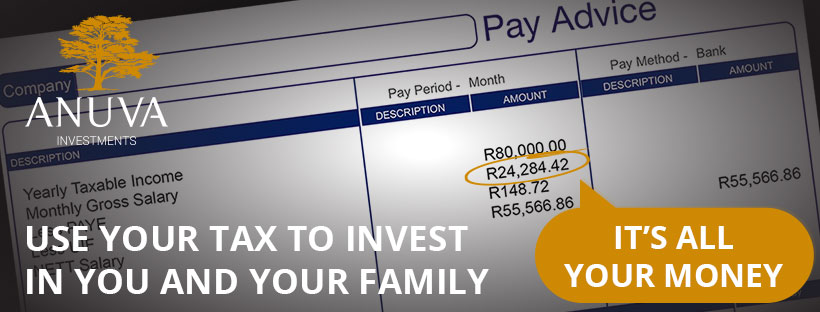Section 12J Investments: What You Need to Know
If you’re looking for alternative investment asset classes in South Africa, you may want to check out Section 12J to help you out. Read more about taxation when you scroll through this site. It gained popularity from years of not being known. This is considered an essential component for companies and people who want to decrease their tax liabilities as much as possible.
It can become an alternative source of income because of its significant returns in a volatile and uncertain market. Some of the things that you need to know about this are the following:
Section 12J Has Been Around for Years
This is not something new in contrast to what others had initially thought. It’s been around since 2009 when the South African governments have introduced various amendments to its tax acts to encourage the private sectors and the whole economy around the world to invest.
This is a kind of a tax incentive for many investors and corporations, so they will be keener to get involved. However, for about five years, there were not many activities made at this time. However, when the amendments in 2014 were made, and the deduction of taxes became subject to stricter restrictions, it was then that the company had gained the momentum it needed. Nowadays, there are over sixty corporations registered as S12J companies.
Not All Companies are the Same
Every business is not created equally. Some have established different objectives and roles as well as their methodologies and strategies. Many may consist of friends similar to a club-type where the entities have their money invested in various businesses and portfolios. At the same time, there are others in Section 12J Investments run by professional asset managers. They are highly sophisticated systems that are regulated regularly.
There are Licenses Needed
The businesses involved in the S12J should have licenses from the Financial Services Board. They should also have a registration to the South African Revenue Services. When they can pass the strict screening and qualify, it can indicate that they are having the best practices inside the corporation. They should also have a registration to the Private Equity Association and the South African Venture Capital.
12J Investments: conditions should be Met
Investors are responsible for investing a specific amount of money in acquiring shares. These shares are part of a registered VCC or venture capital company which is essentially an S12J. This, in turn, will invest the money into the qualifying investees.
There’s a provision where the S12J company should not put money into the investee of more than 20% of the funds they have acquired from the financers. This, in turn, can achieve its primary goal of supporting a lot of private companies, mitigating risk, and creating more diversity and spread.
Cap Amounts are Not Present
There are no cap amounts that are legally legislated for any individual investors. However, there are provisions where a practical capitalist would limit the entire amount to its aggregate taxable income for that particular year. Aside from this, some businesses may set a maximum or minimum amount before accepting a specific investment.
12J Investments: Other Things to Know
Many capitalists can claim some of the amounts they used to acquire shares on a specific company, which is considered a tax deduction to their income for this year. This comes with conditions like the shares should have been held for at least the last five years, and the overall benefit is not going to be recouped by the government. In five years, the capital gains of the sale proceeds are going to be taxed. Learn more about what capital gains are here: https://www.investopedia.com/terms/c/capitalgain.asp.
Depending on the strategy adopted by a particular company, they are the ones who will determine the qualifications of the investee company where they are going to put their funds. The qualifying enterprises or investees may include those who are just starting up their businesses but have the potential for explosive growth in the following years.
These industries may include technology or pharmacy. Some are putting the money into businesses that have been running for decades. These are the ones with established track records in many industries like distribution, manufacturing, tourism, and more. However, there may be an avoidance of the advisory and financial services because they may be too complex.
There’s a potential risk for many investors. They need to be aware that there’s a possibility that a secondary market may not exist for their shares in a particular S12J company after the elapse of the five-year investment period. However, some with those professional managers often have exit strategies that can create much-needed liquidity for many investors.
For the investee to be qualified, it needs to be classified as a South African entity. This means that the business should trade goods and services inside the country, and it should not be operating in sectors specified by law. Some of the companies that may be excluded are the following:
- Enterprises involved in the trading of immovable properties. This may apply to hotel keepers or include bed and breakfast inns.
- Companies involved in the insurance sector, financing, banks, hire-purchase financing, and money-lending institutions are not allowed to be considered as S12J investees.
- The ones that provide tax advisory services are involved in the legal fields, have accounting, auditing, firm consulting, stockbroking, and management are not allowed.
- Casinos, gambling houses, or any businesses where the profits are tied to the game of chance and luck are not considered as investees.
- Corporations involved in buying and selling arms, tobacco products, drugs, ammunition, and liquor are prohibited from joining.
For any investors interested in taking on the tax benefits of the S12J, their time may be running out, and they need to act fast. The SARS is introducing some of the sunset clauses for Section 12J that may affect the 30th of June 2021.
There may be hopes, but the current regime may not extend its term. It’s noteworthy, however, to know that the investors are still going to continue to receive their benefits on taxes if they register before the said date, even if they have the investment end after June 2021.




















